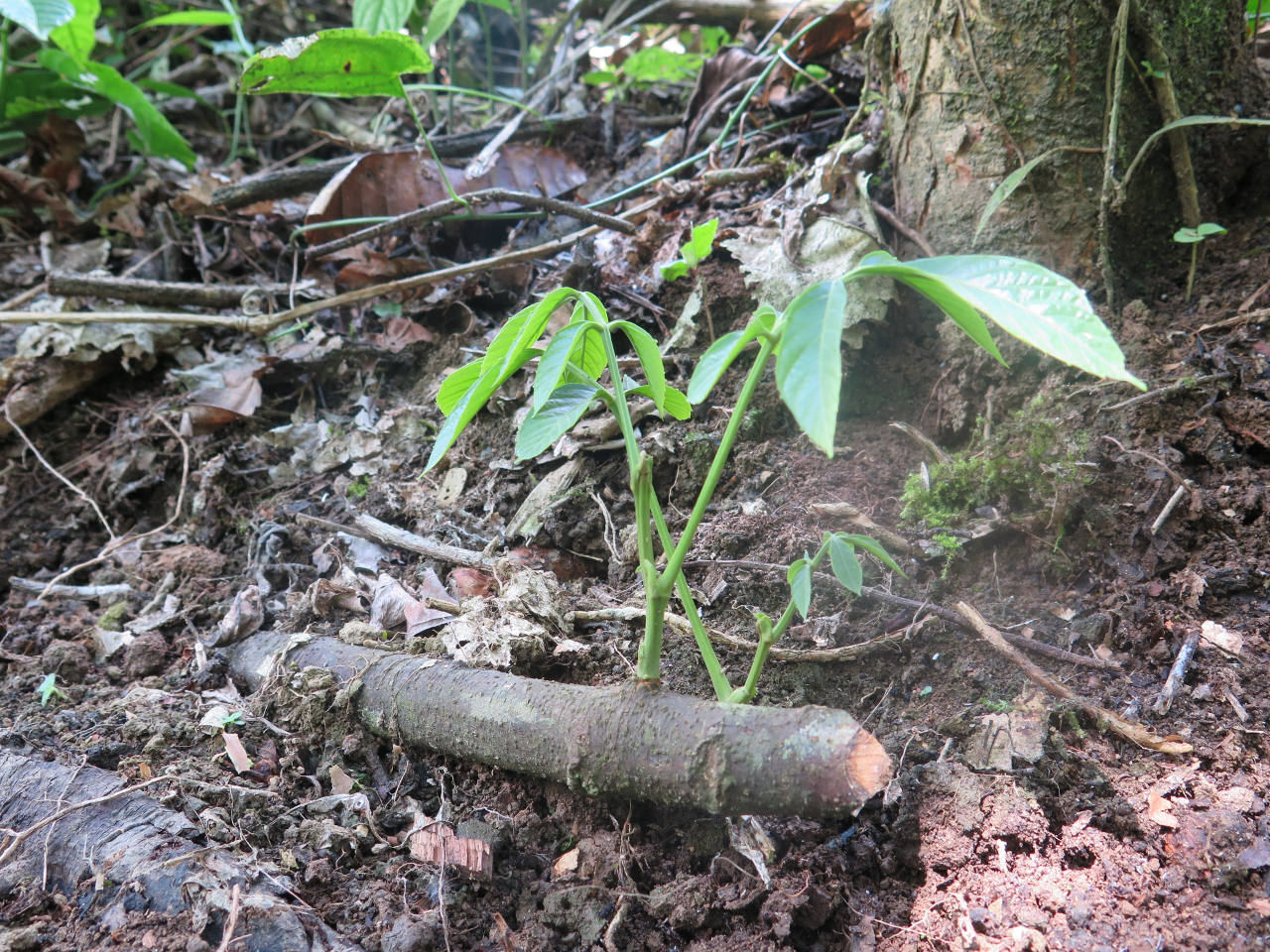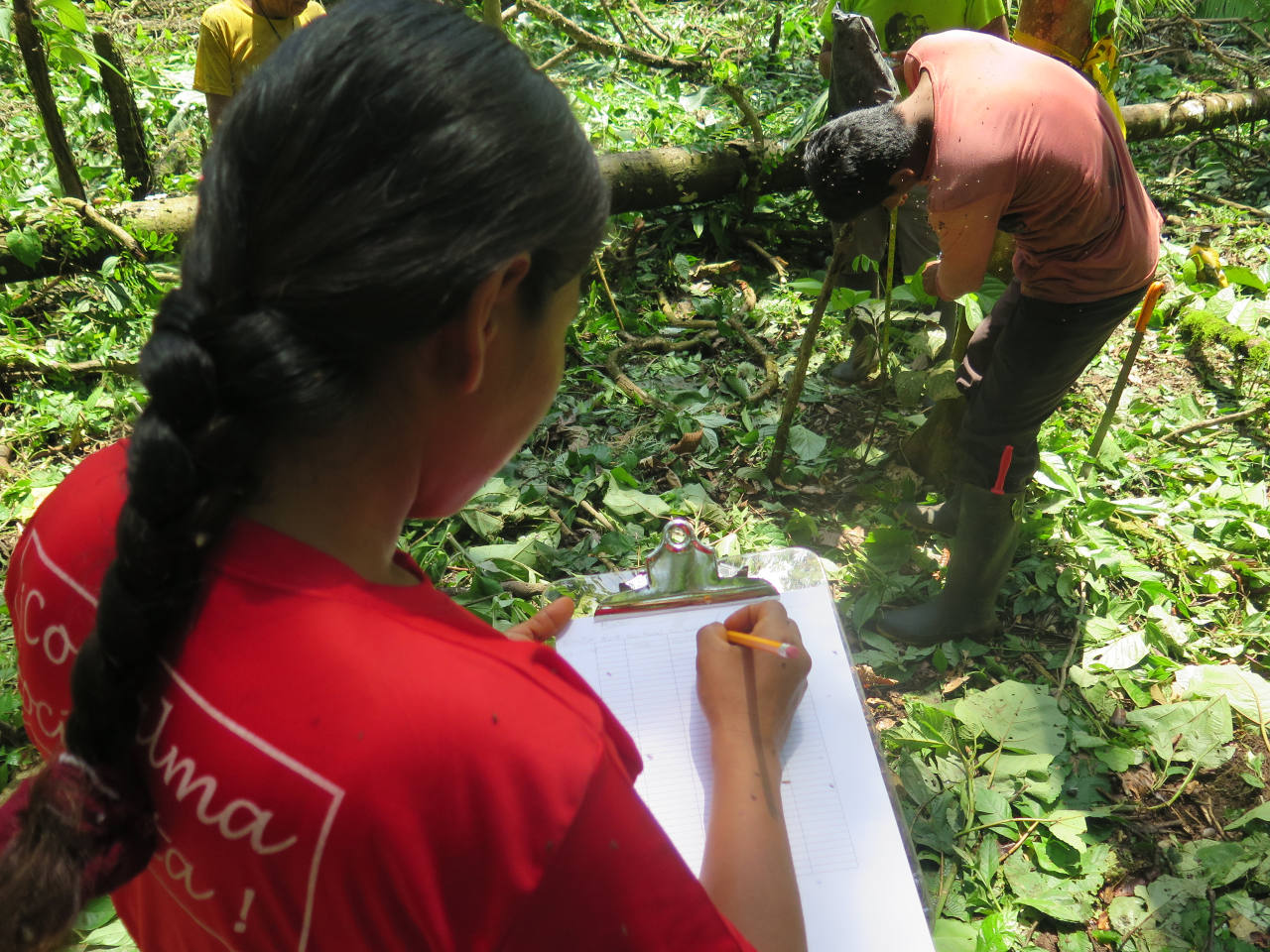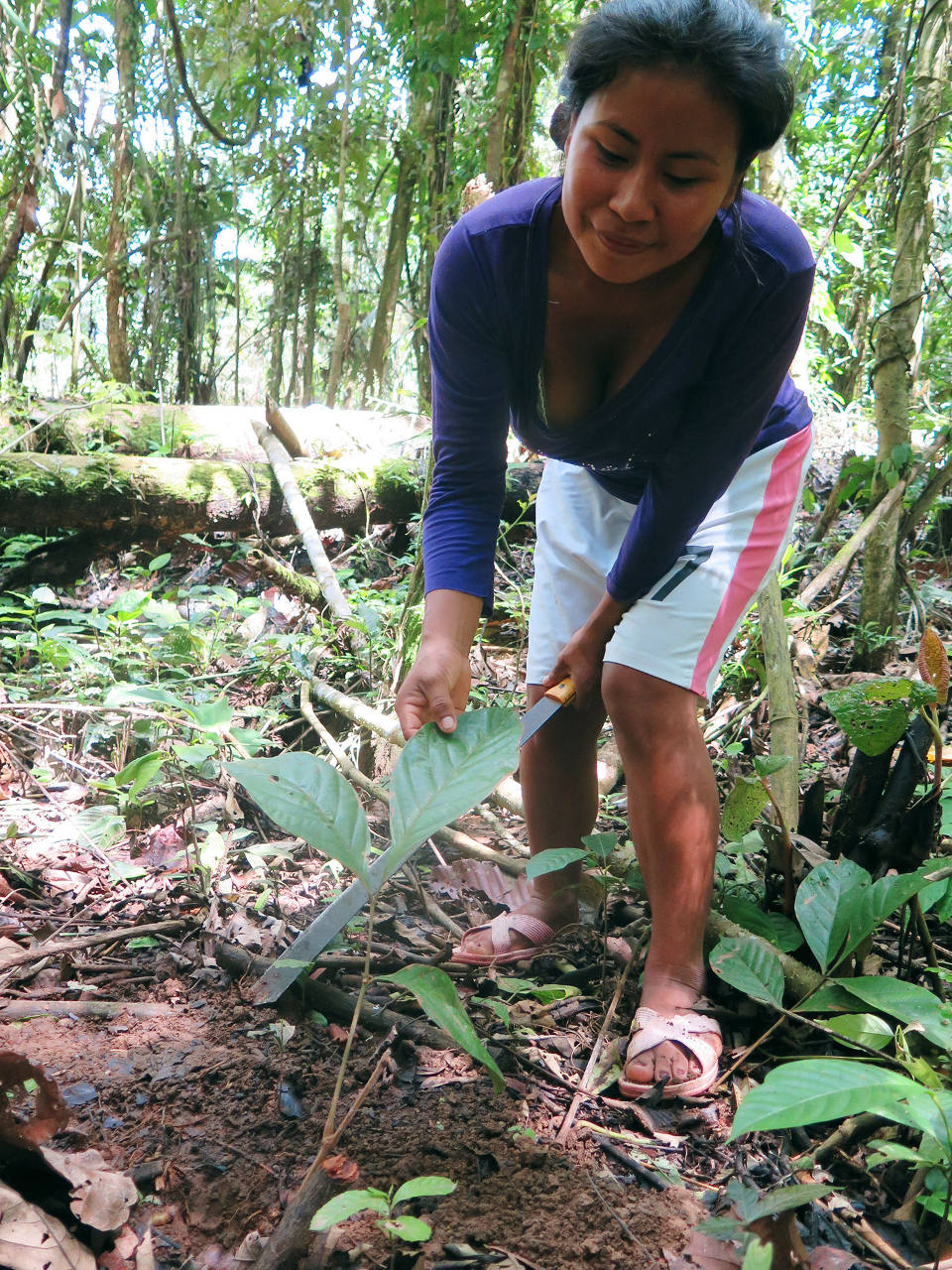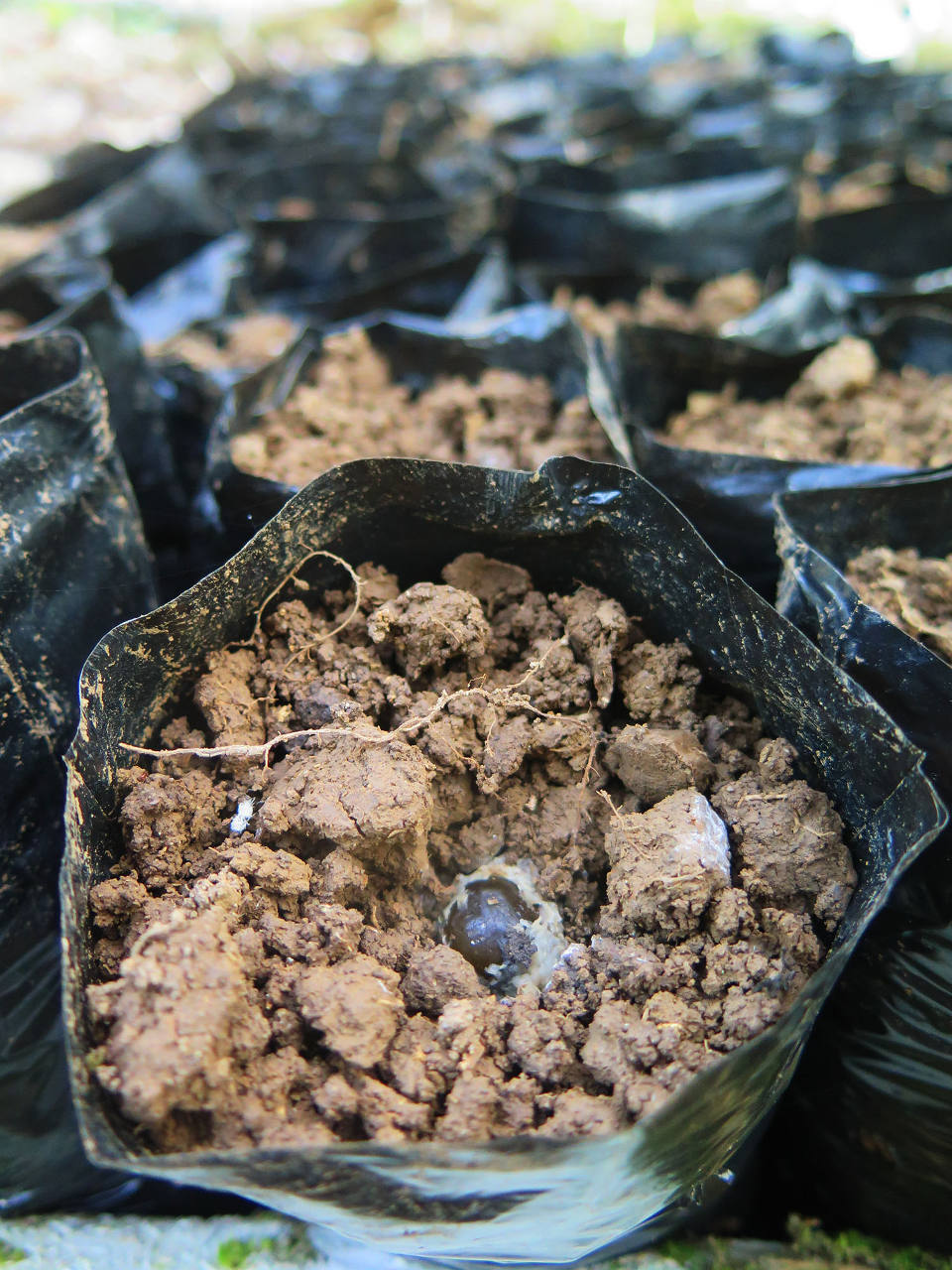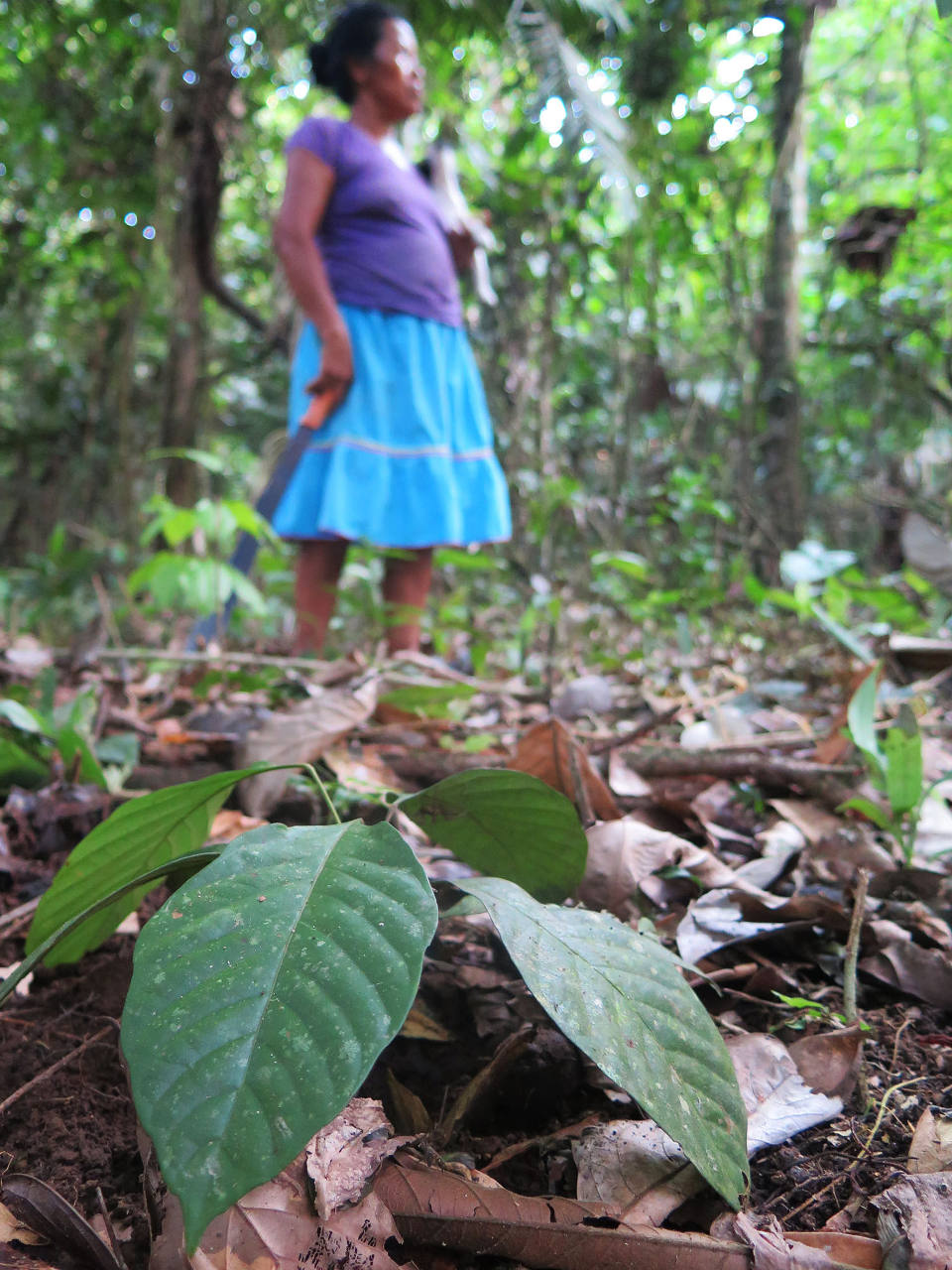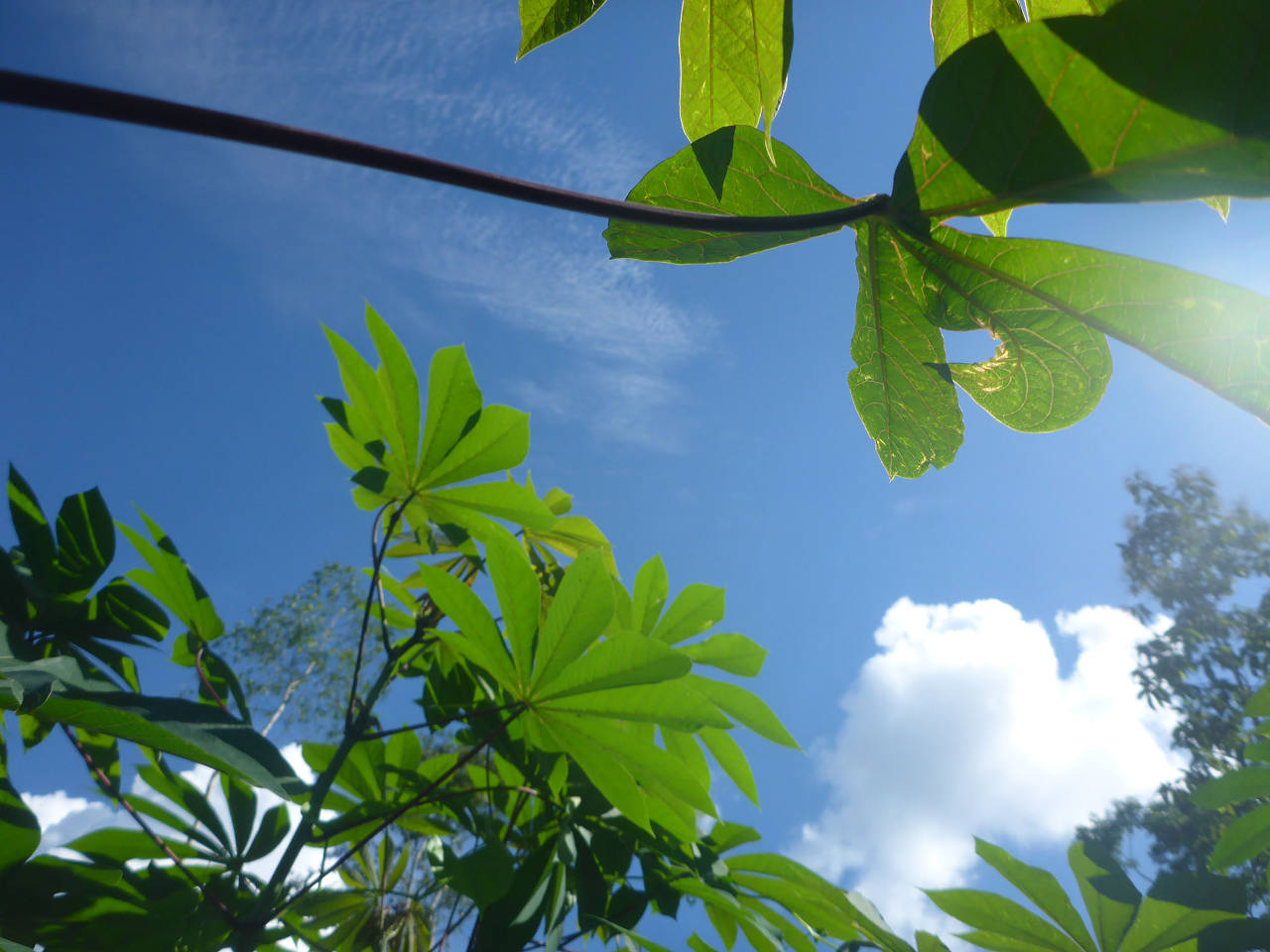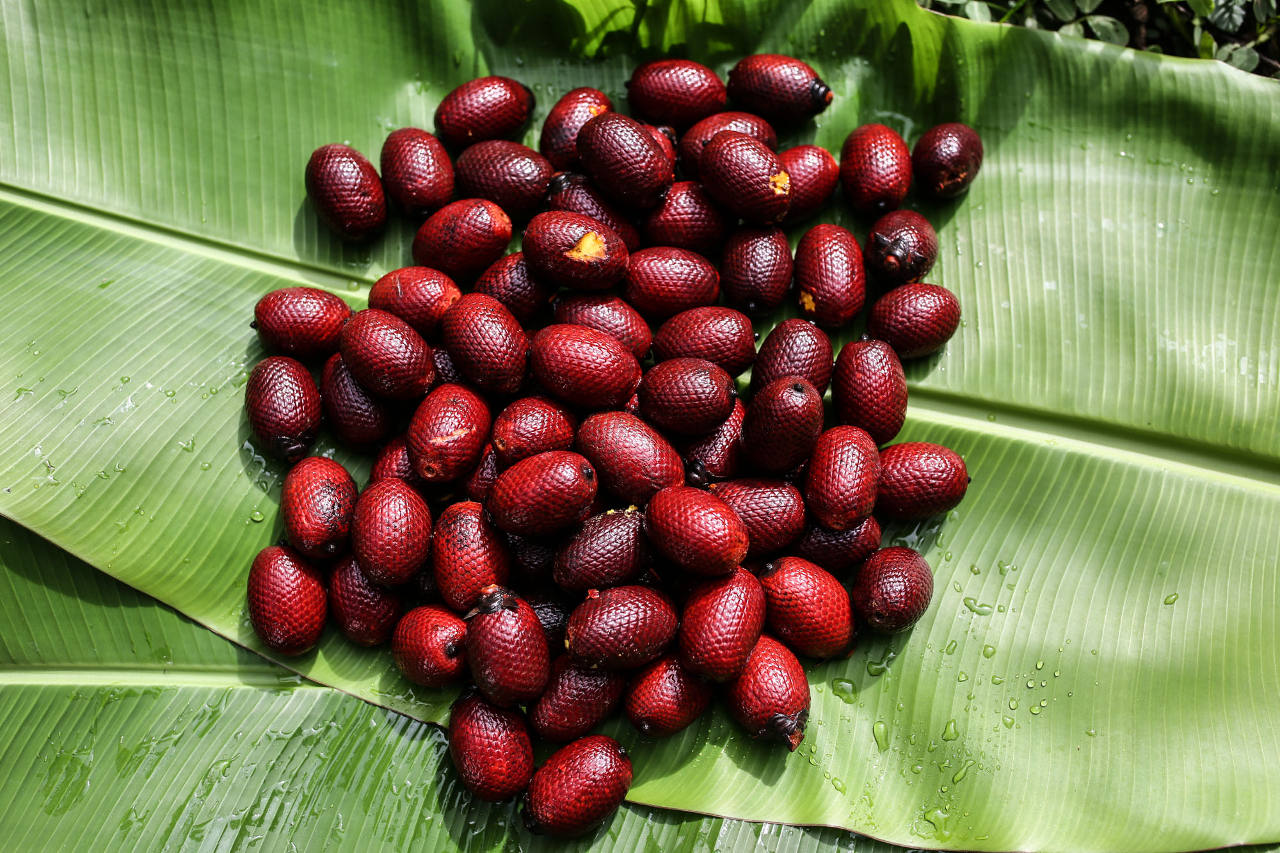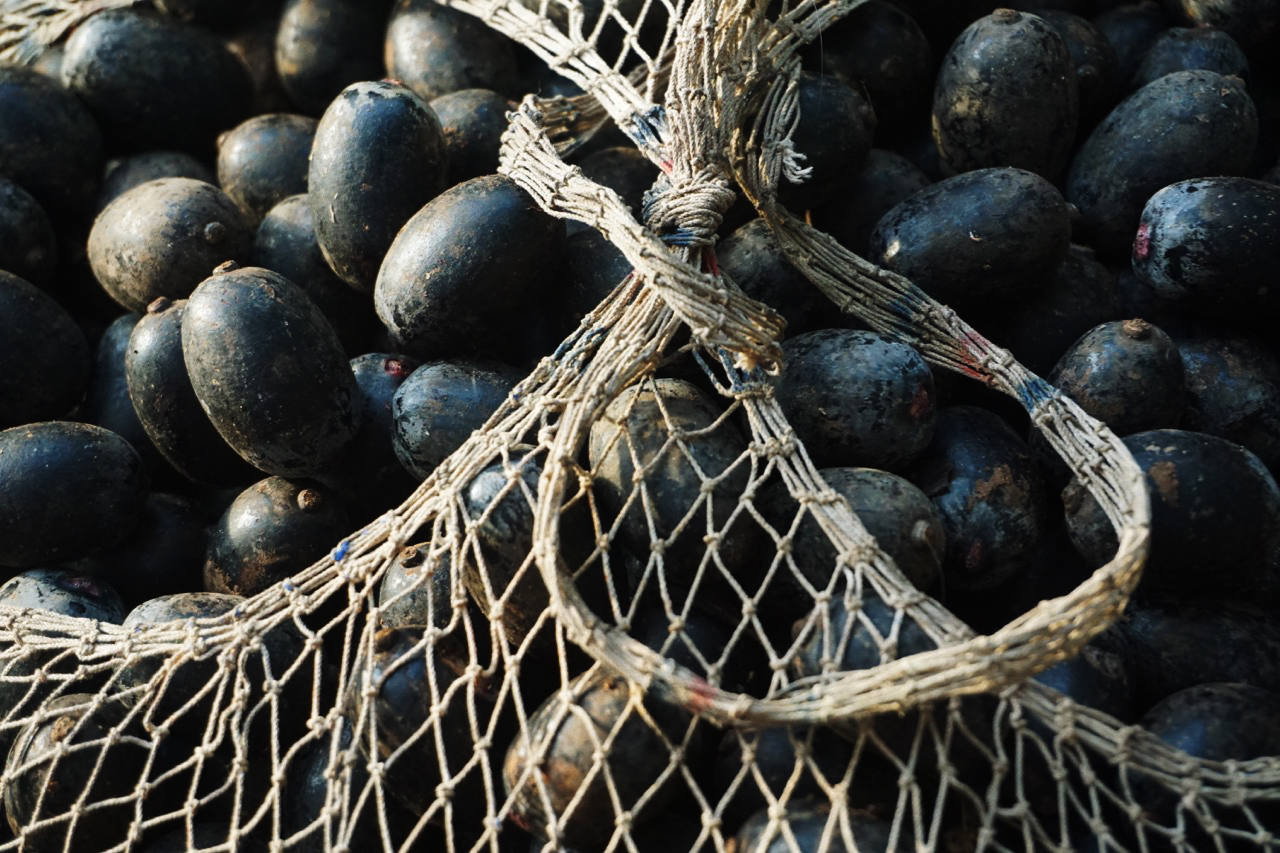Imagine a forest people without the knowledge and skills to derive necessary medicines from their own forest…
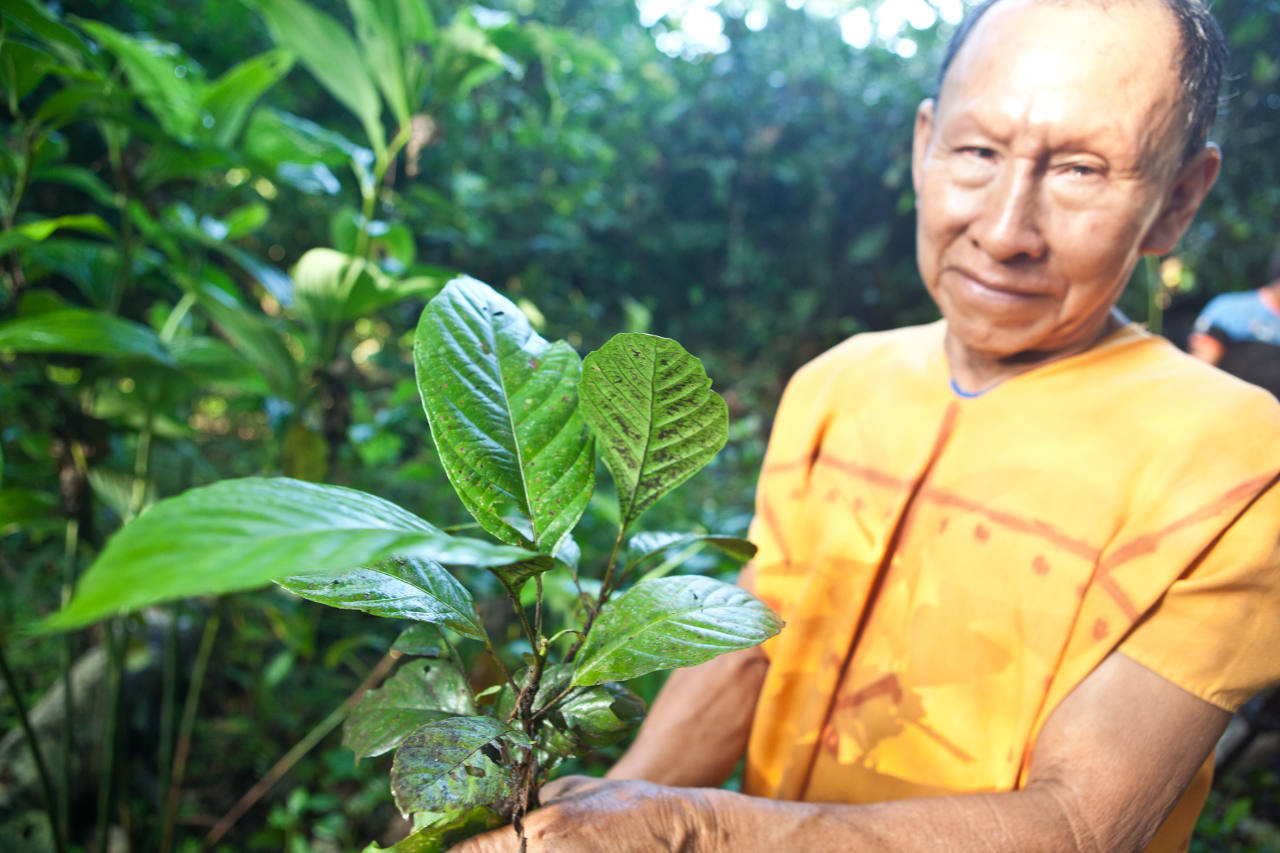
…A forest people who have lost their cultural and spiritual connection to the plant world around them…
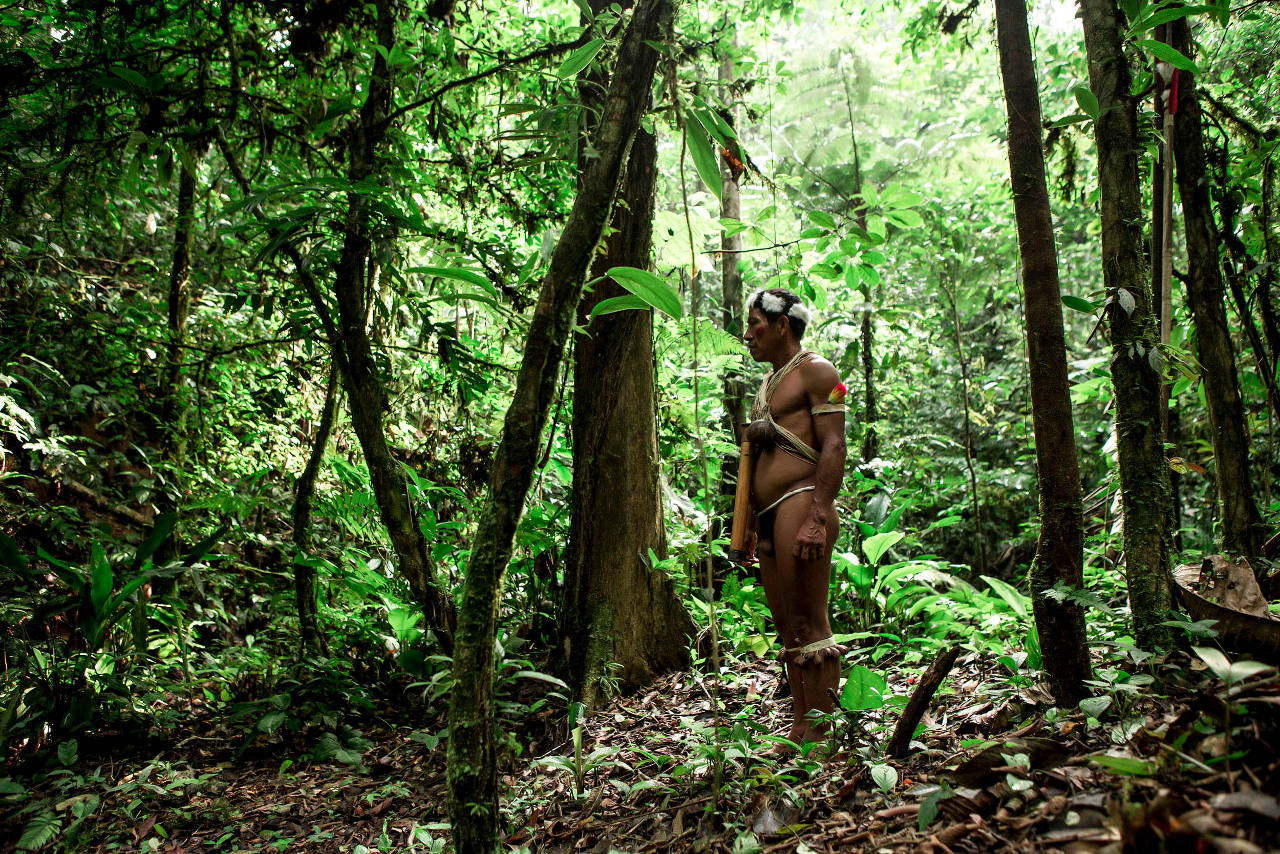
A people who cannot feed themselves with traditional foods, because they no longer exist…
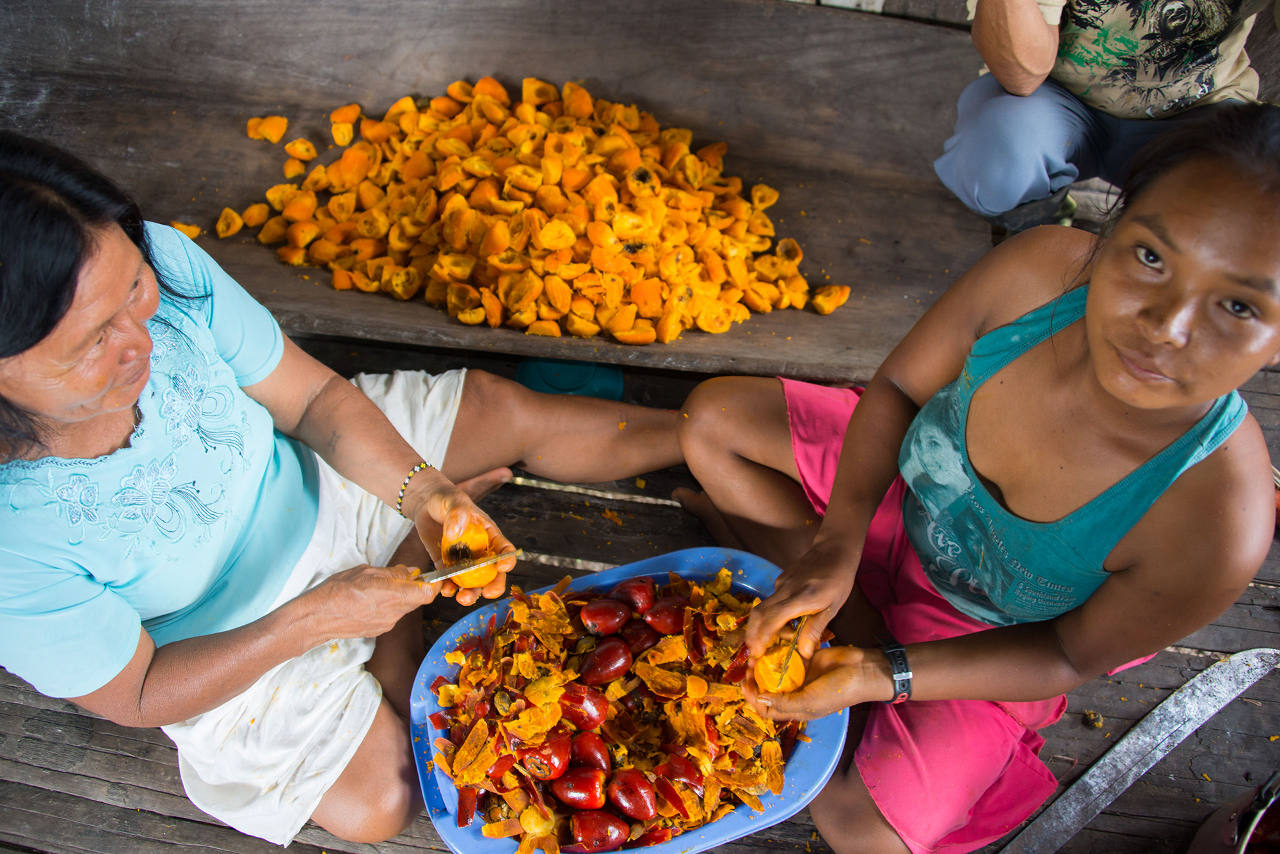
The notion is sad, but is alarmingly close to modern-day reality for many Amazonian peoples.
Our work involves facilitating communities in recovering critically important cultural plants such as ‘Yoco’ -one of the most important cultural-identifying plants of this region prepared each morning for its strong stimulatory effects, similar to coffee in Western culture, but with a much stronger role as a spiritual conduit.
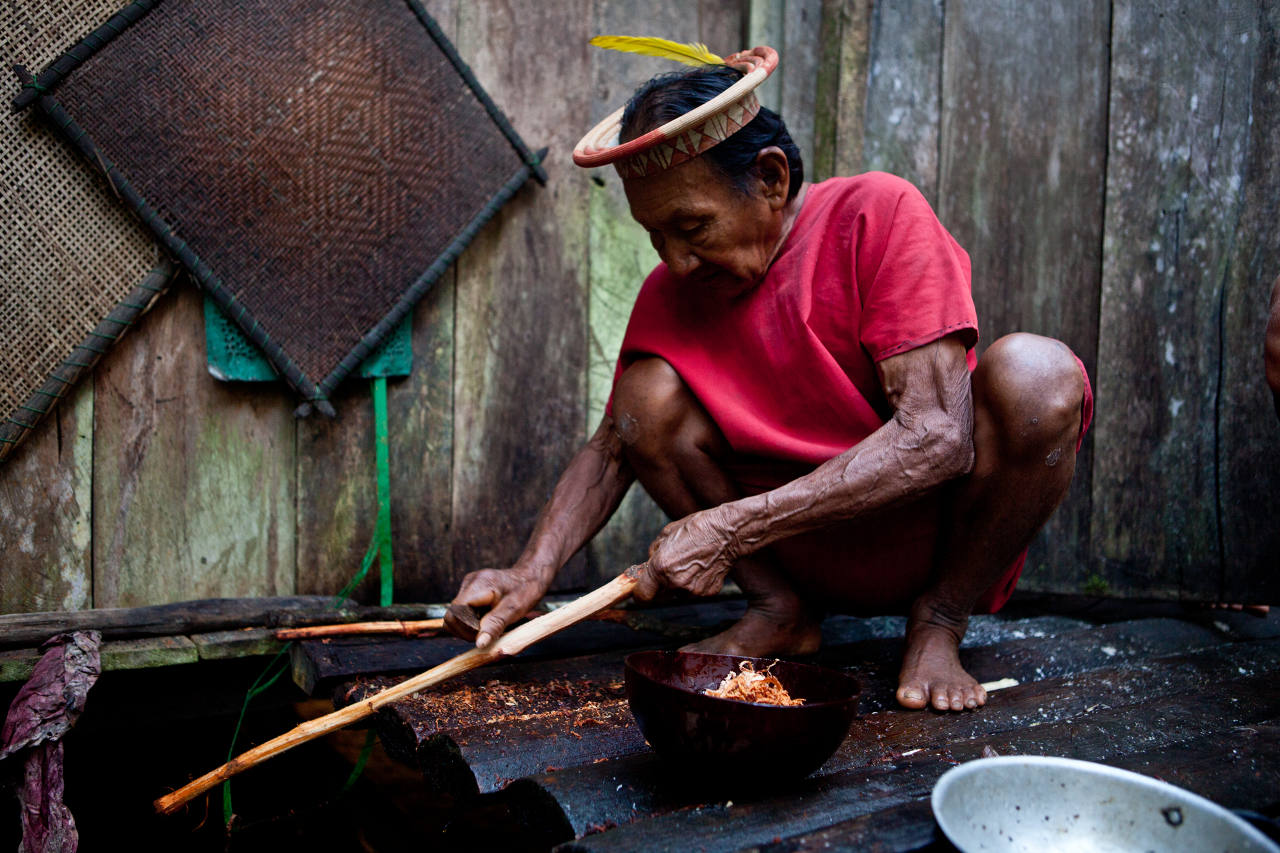
Yoco-a woody vine traditionally harvested from the wild- is in danger of being lost due to unsustainable harvesting practices within much reduced territories. Several communities have implemented one-hectare experimental plots which are designed to learn the “secrets” of cultivating this very difficult-to-grow vine and establish a plentiful local supply.
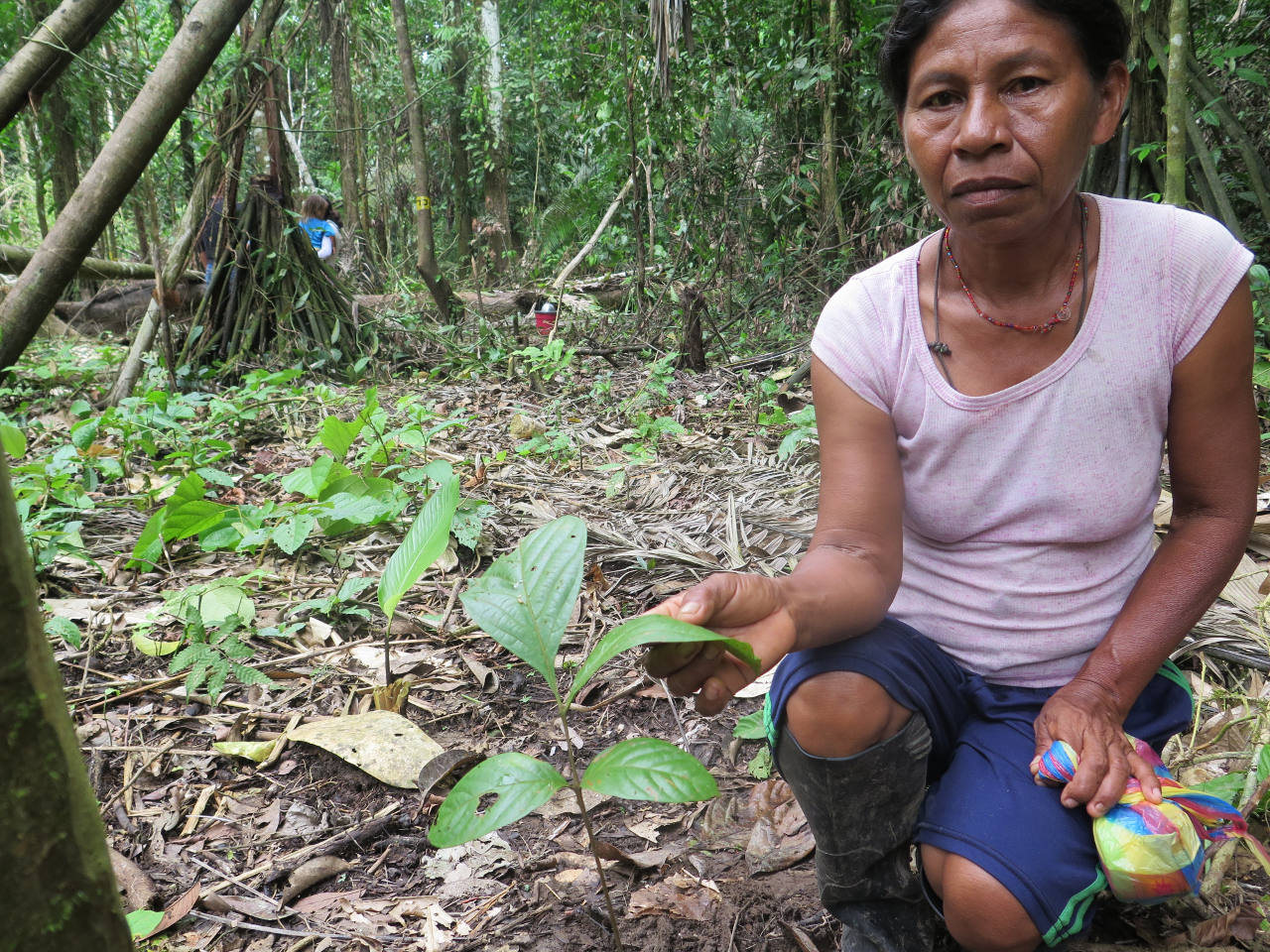
We are also supporting the collection of ancestral cultivars and important wild medicines and consolidating them within medicinal plant gardens…
The knowledge related to the plant’s identification, preparation and usage are being transferred from elders to youth during forest walks and through school children visits to the medicinal garden site…
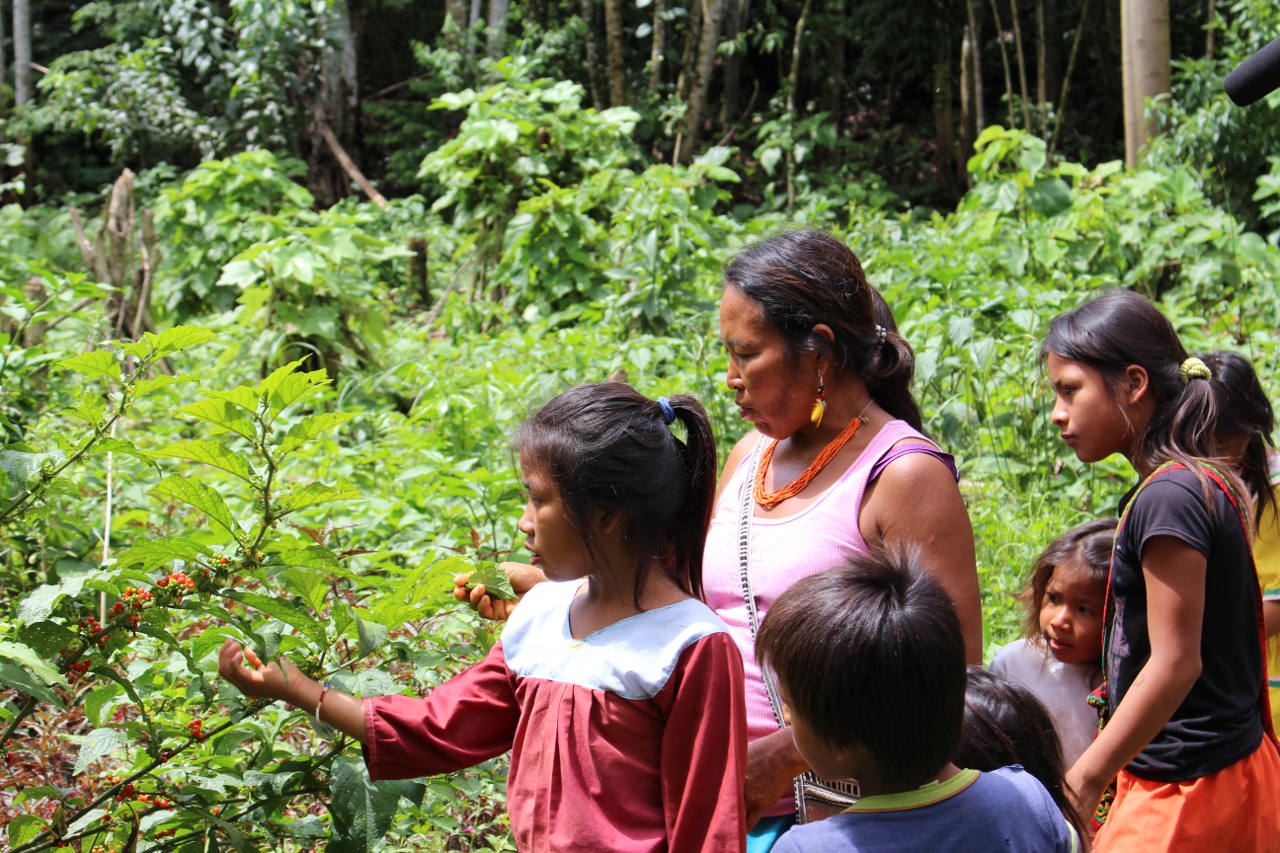
…and at the same time being preserved in the form of written texts, recordings, video documentaries.
We are also catalyzing the process of bridging the immense gap between traditional healing systems and western medicine and creating a more integrated system of health.
We also assist indigenous people to recover and maintain ancient food crops. Foods that have been collected, cultivated and modified for millennia are rapidly being replaced with foreign crops of much lesser nutritional value. Currently we are assisting one village in recovering ancient varieties of manioc…
… and will soon begin the recovery of important Amazonian food crops such as the rare variety of maize used by the Secoya and Siona peoples, and high-energy native fruit orchards for the school children to enjoy and grow strong.

